Counting proficiency Addition Worksheets for Ages 4-5
11 filtered results
-
From - To
Discover our engaging Counting Proficiency Addition Worksheets designed specifically for children aged 4-5. These interactive worksheets help young learners master the essentials of counting while introducing them to basic addition concepts. Each activity focuses on building confidence in numbers through colorful visuals and playful exercises. By practicing counting alongside addition, children develop a strong foundation for future mathematical skills. With our expertly crafted resources, your little ones will enjoy essential practice that fosters a love for learning. Perfect for at-home or classroom use, these worksheets provide endless fun while enhancing early math skills. Start your child’s arithmetic journey today!
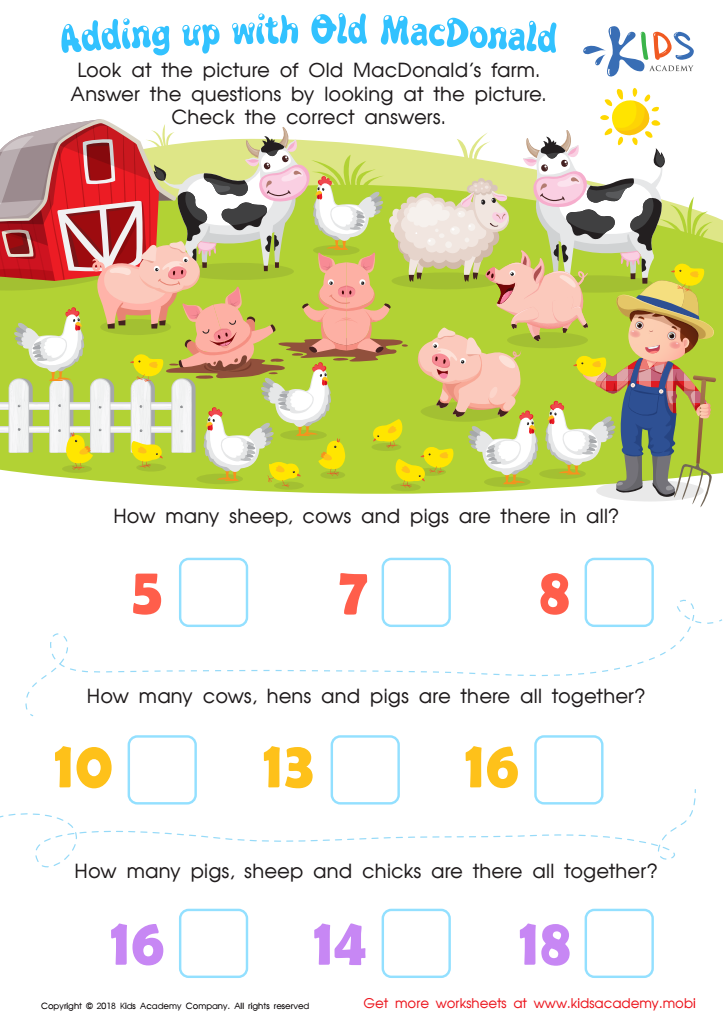

Adding Up with Old MacDonald Worksheet
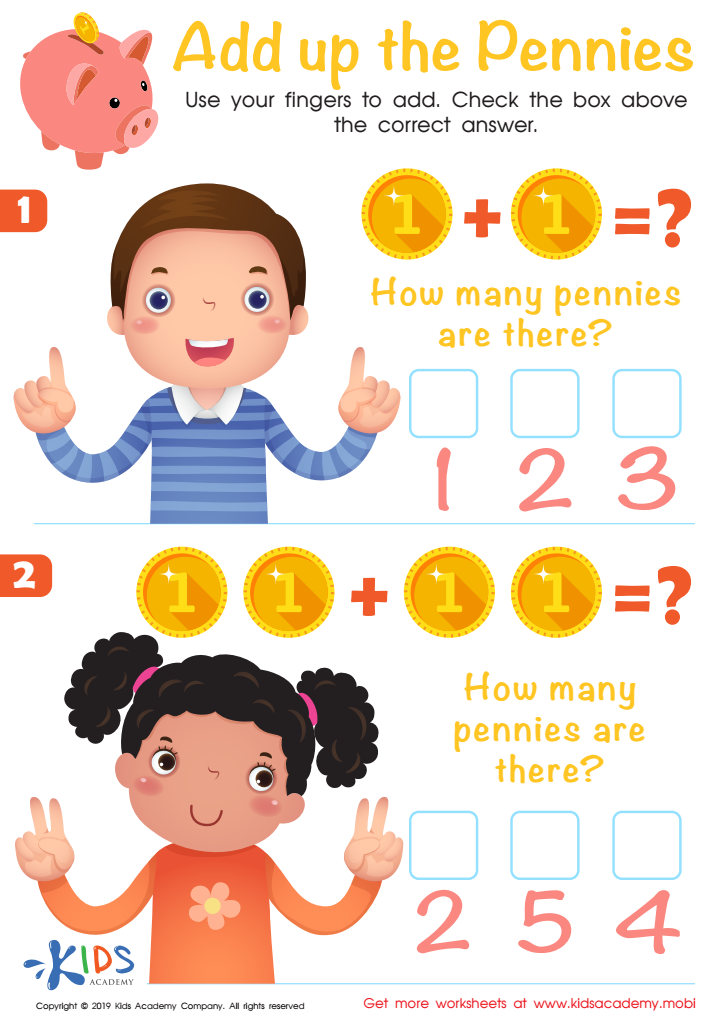

Add up the Pennies Worksheet
Counting proficiency and foundational addition skills are crucial for children aged 4-5 as they set the groundwork for their future mathematical understanding. At this early age, children are naturally curious and eager to learn, and engaging them with counting and addition not only develops their numeracy skills but also enhances cognitive development. Counting helps children recognize patterns, understand quantity, and improve their ability to make comparisons, all of which are important for problem-solving in later grades.
Moreover, mastering basic counting and simple addition promotes confidence in children. When they successfully count objects or solve simple addition problems, they gain a sense of accomplishment, encouraging a positive attitude towards math as they grow. For parents and teachers, fostering these skills is vital for ensuring readiness for school curricula, where math concepts become more complex.
Additionally, understanding numbers influences various life skills, from managing money to interpreting data. Creating a strong mathematical foundation also supports children’s overall academic success, as math skills are interconnected with reading comprehension and analytical thinking. Thus, prioritizing counting and basic addition in early childhood education promotes long-lasting benefits, equipping children with essential tools for lifelong learning.
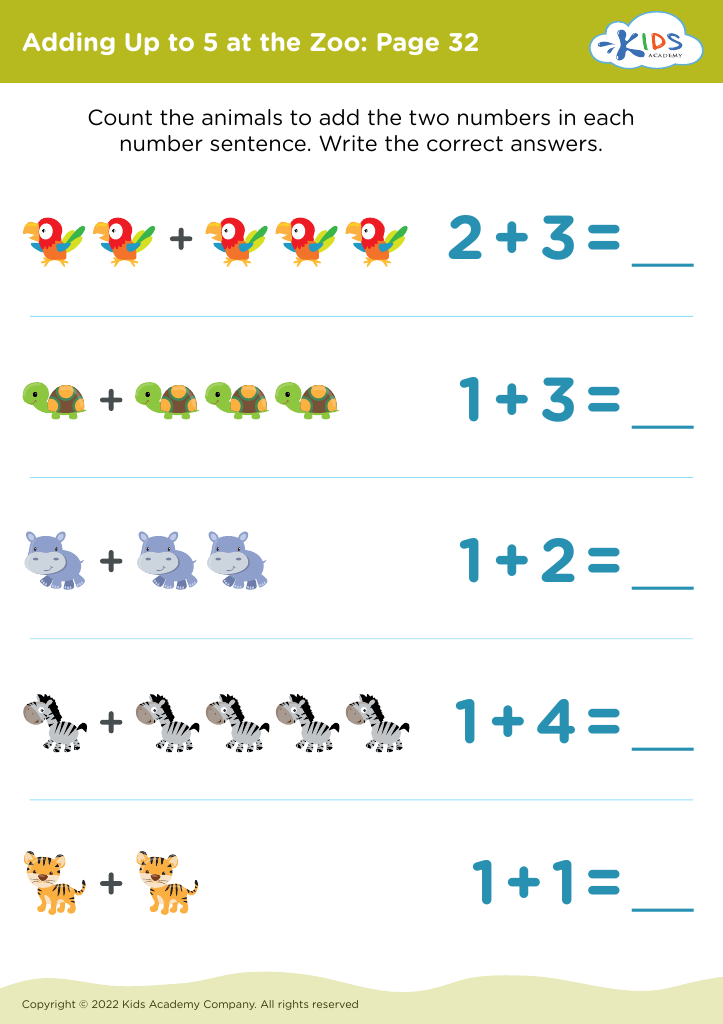

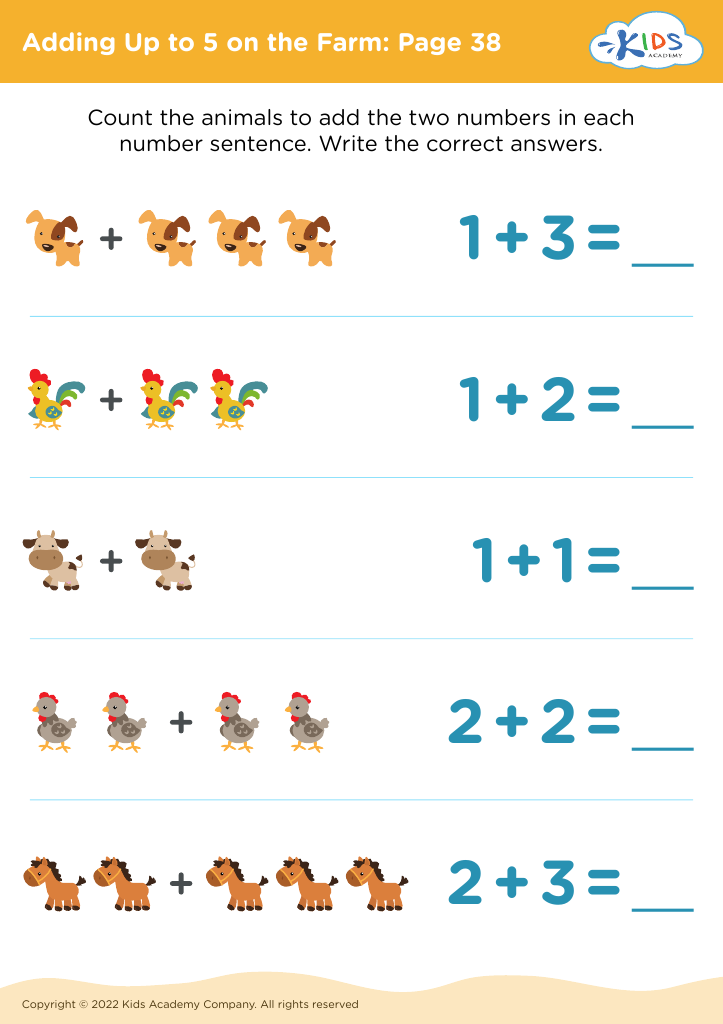
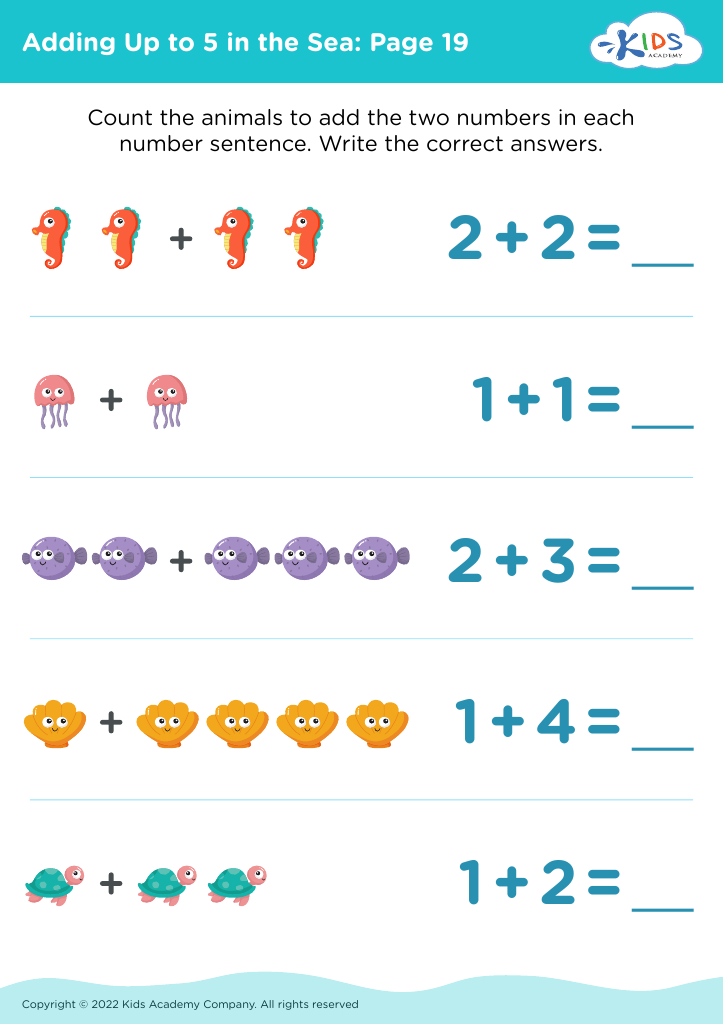
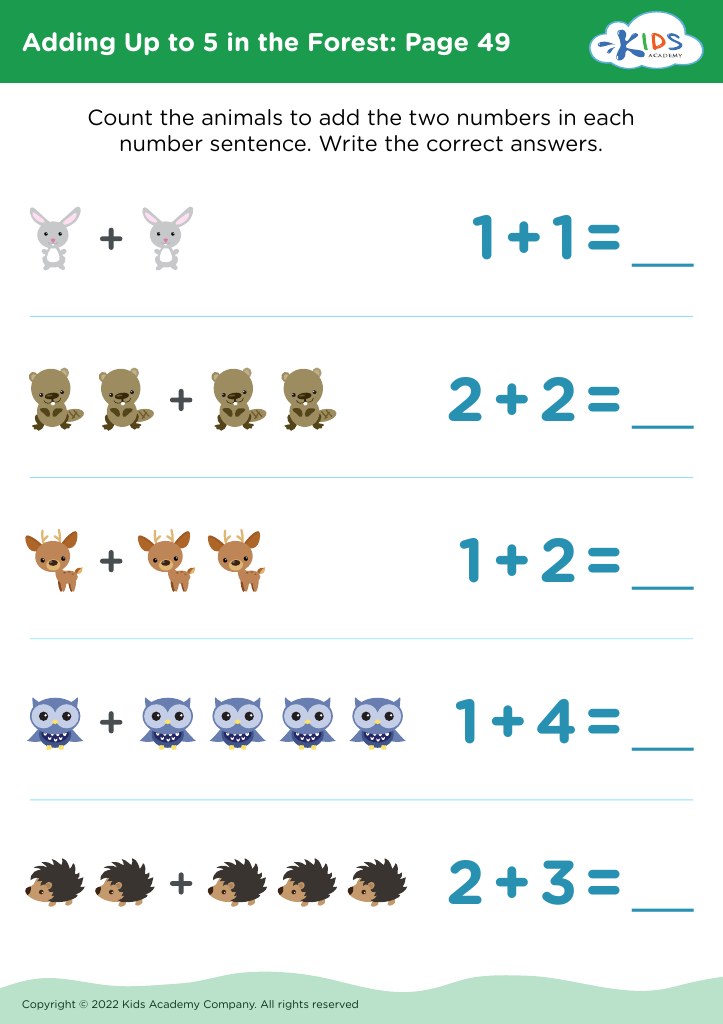
 Assign to My Students
Assign to My Students
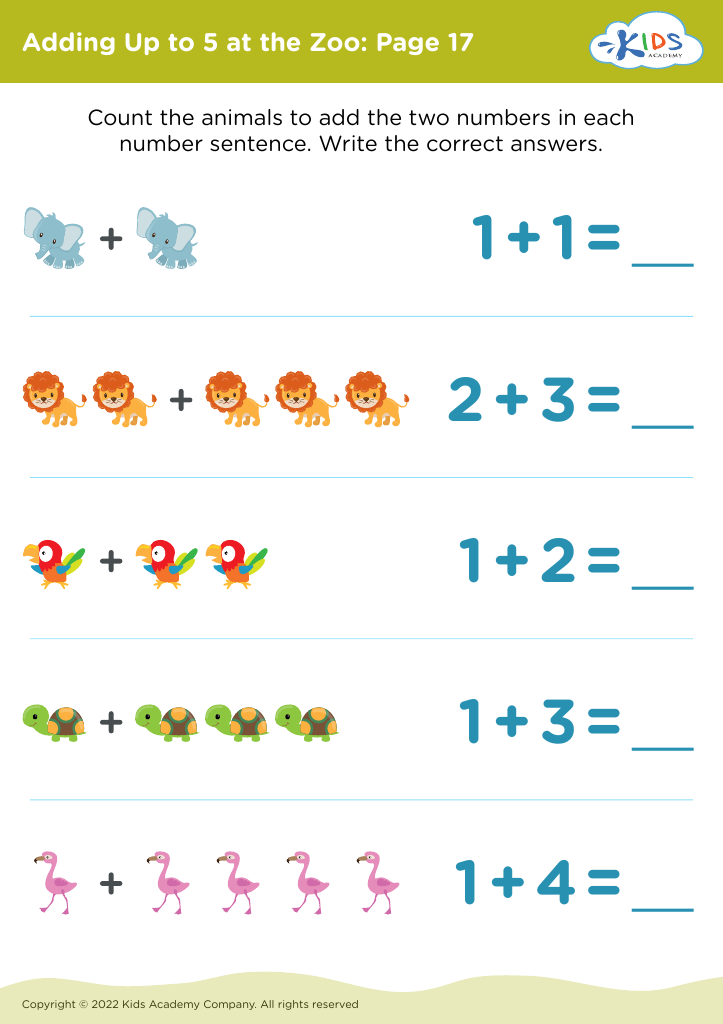
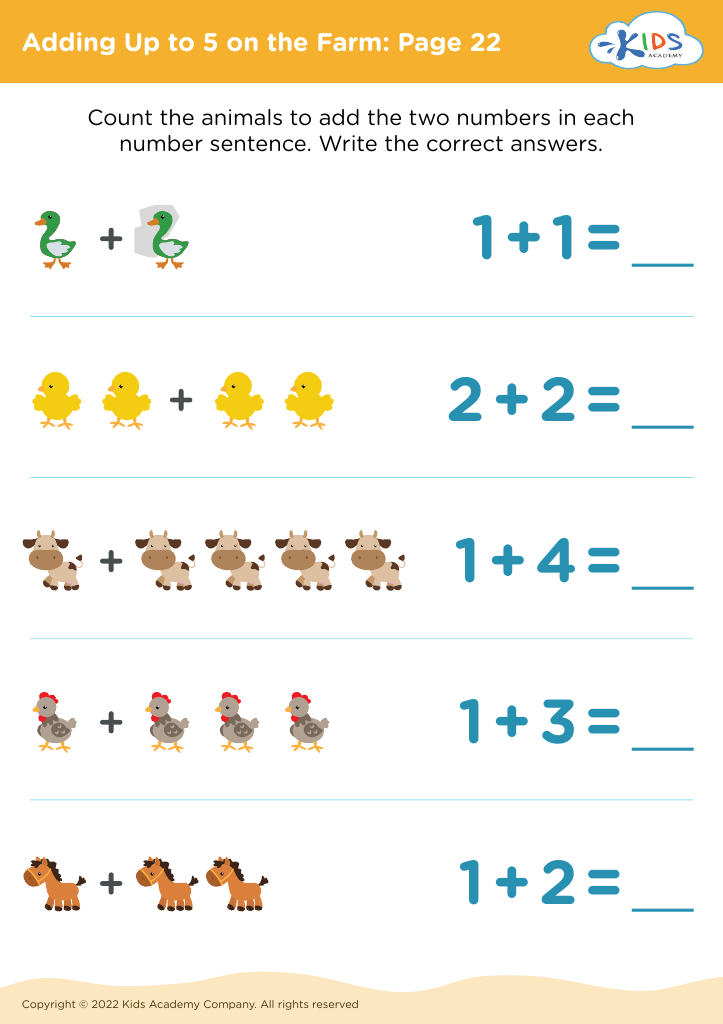
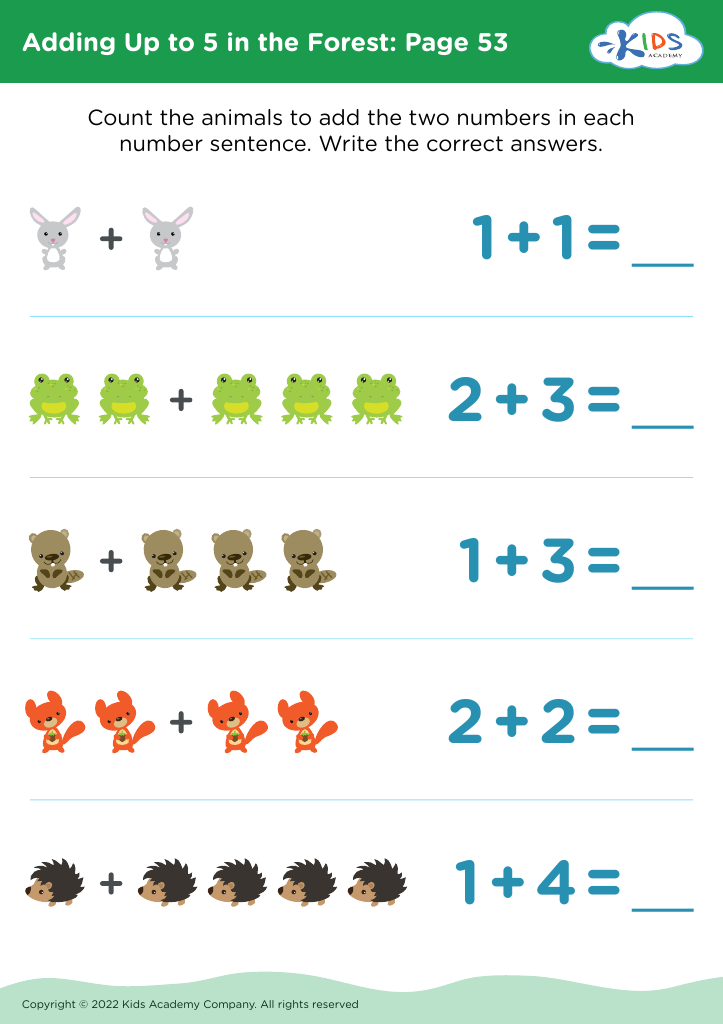

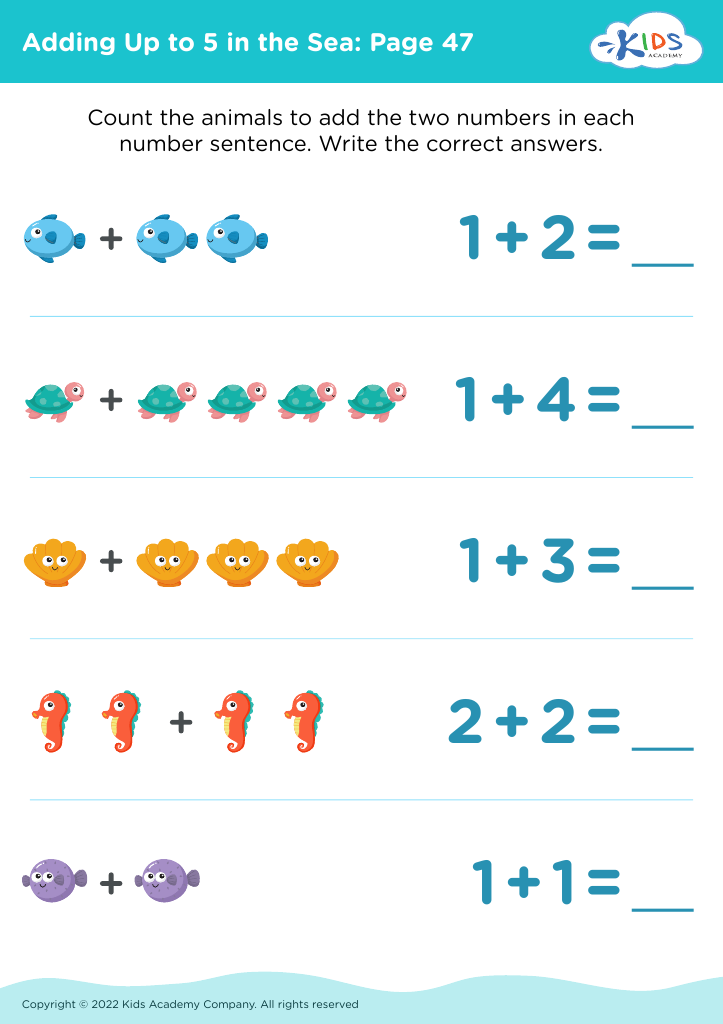
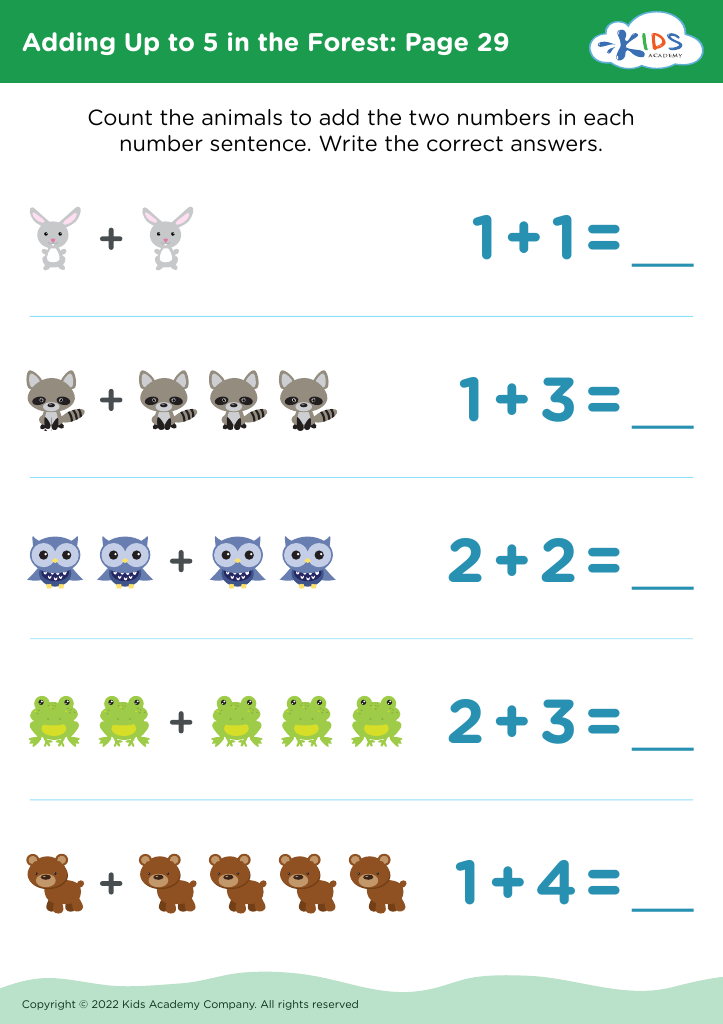




.jpg)















